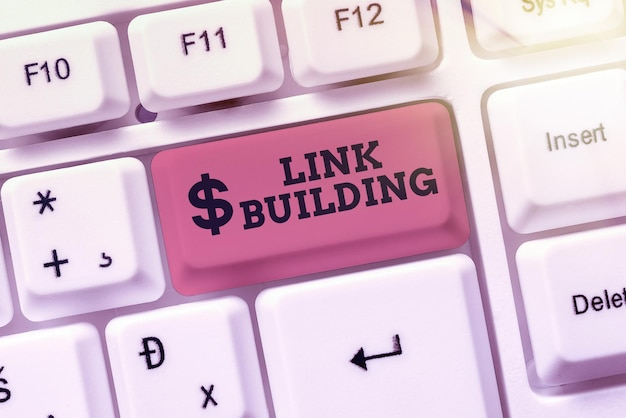
Depression is a complex and multifaceted mental health condition that affects millions of individuals across all ages, backgrounds, and life situations. One of the most misunderstood aspects of depression is the assumption that it is a single condition with a uniform presentation. In reality, depression exists in many forms — each with unique triggers, symptoms, durations, and treatments. This diversity makes accurate diagnosis and personalized care absolutely critical for recovery.
In recent years, there has been significant advancement in how clinicians categorize and treat different types of depression. Whether you’re seeking answers for yourself or supporting someone you care about, understanding the various subtypes of depression can lead to more effective interventions and better outcomes. For individuals exploring depression treatment in Palm Springs, access to modern, evidence-based options ensures that care is comprehensive and tailored to each specific diagnosis.
1. Major Depressive Disorder (MDD)
Major Depressive Disorder (MDD) is the most widely recognized and studied form of depression. It involves a persistently low mood or loss of interest in most activities, lasting at least two weeks. It’s not simply about feeling sad — it’s a profound disruption in a person’s emotional, physical, and cognitive state.
Additional Symptoms:
- Inability to experience pleasure (anhedonia)
- Slowed speech and motor activity
- Irrational guilt or self-blame
- Social withdrawal
- Suicidal ideation or behaviors in severe cases
Expanded Treatment Approach:
- Medication management: Patients often start with SSRIs or SNRIs. In cases of treatment-resistant depression, psychiatrists may explore atypical antidepressants or mood stabilizers.
- TMS (Transcranial Magnetic Stimulation): A non-invasive brain stimulation therapy offered at many centers providing depression treatment in Palm Springs. TMS is especially useful when medication has proven ineffective.
- Lifestyle integration: Nutrition, physical activity, and sleep hygiene are actively monitored alongside therapy.
2. Persistent Depressive Disorder (Dysthymia)
Persistent Depressive Disorder (PDD) represents a chronic and long-lasting form of depression. It may not be as intense as MDD but is more prolonged, often lasting two years or more. Individuals with PDD may appear functional on the outside but experience an enduring sense of gloom and low motivation.
Functional Impairments:
- Reduced productivity and focus at work
- Struggles with relationships and parenting
- Increased risk for co-occurring conditions such as anxiety or substance abuse
Multimodal Treatment:
- Long-term psychotherapy: Therapies like CBT and dialectical behavior therapy (DBT) are essential.
- Medication adherence: SSRIs and atypical antidepressants are typically effective when taken consistently.
- Supportive counseling and group therapy help combat the isolation associated with long-term emotional fatigue.
3. Bipolar Depression
While bipolar disorder is known for its manic highs, the depressive episodes are equally, if not more, debilitating. Bipolar depression is often misdiagnosed as MDD, leading to inappropriate treatments that can worsen the condition.
How It Differs:
- Episodes of high energy or mania often alternate with depressive phases
- Increased impulsivity and risky behavior during manic periods
- Depression tends to be deeper and more resistant to conventional antidepressants
Specialized Treatment Protocols:
- Mood stabilizers: Lithium, valproate, or lamotrigine are first-line treatments.
- Atypical antipsychotics: Used for both mania and bipolar depression.
- TMS and structured psychotherapy: Beneficial in managing mood stability when combined with medication.
At advanced care facilities offering depression treatment in Palm Springs, accurate differential diagnosis is prioritized, which is vital for managing bipolar spectrum disorders safely and effectively.
4. Seasonal Affective Disorder (SAD)
SAD is a form of depression linked to changes in seasonal light exposure, most commonly occurring during fall and winter. It’s more prevalent in geographical locations with reduced sunlight during colder months.
Key Challenges:
- Disruption in sleep-wake cycles (circadian rhythm)
- Serotonin imbalances linked to reduced sunlight exposure
- Tendency for symptoms to repeat annually, creating predictable distress
Modern Treatment Plans:
- Light therapy using full-spectrum lightboxes for 20–30 minutes a day.
- Melatonin supplementation and chronotherapy in some cases.
- Antidepressants and psychotherapy, especially if symptoms persist beyond seasonal patterns.
Clinics that offer depression treatment in Palm Springs may not see SAD cases frequently due to the sunny climate but are equipped to treat individuals experiencing SAD as a result of lifestyle shifts or prolonged indoor isolation.
5. Postpartum Depression (PPD)
Postpartum depression is a severe, longer-lasting mental health condition that can occur after childbirth. It affects roughly 1 in 7 new mothers and can also impact fathers. PPD goes far beyond the “baby blues” and often interferes with a parent’s ability to function and bond with their infant.
Risk Factors:
- Hormonal fluctuations
- Lack of sleep
- Past history of depression or anxiety
- Limited social support
Holistic Management:
- Mother-baby therapy programs to foster bonding
- Safe antidepressants during breastfeeding
- Psychiatric oversight from specialists in reproductive mental health
- Peer support groups and counseling
Providers offering depression treatment in Palm Springs often partner with OB/GYNs and pediatricians to screen for PPD and provide wraparound care.
6. Atypical Depression
Atypical depression is a subtype marked by mood reactivity — feeling better temporarily when something good happens — but followed by periods of fatigue, heaviness in limbs, and hypersensitivity to rejection.
Complications:
- Often misunderstood as laziness or emotional instability
- May co-occur with social anxiety or panic disorder
- Tends to be chronic if untreated
Targeted Treatment Strategies:
- Monoamine oxidase inhibitors effective but less commonly prescribed
- Behavioral activation and social skill training in therapy
- Holistic interventions, including nutrition and circadian rhythm stabilization
Clinics providing depression treatment in Palm Springs typically use structured diagnostic interviews and psychological assessments to detect atypical symptoms early.
7. Situational Depression (Adjustment Disorder with Depressed Mood)
Situational depression is a short-term response to a stressful life event. Though not chronic, it can still be disabling if left unaddressed.
Common Triggers:
- Job loss or financial stress
- Divorce or relationship breakdown
- Loss of a loved one
- Major life changes like relocation
Best Treatment Pathways:
- Talk therapy focused on coping strategies and resilience-building
- Stress management coaching and emotional regulation skills
- Short-term medication if anxiety or insomnia is severe
Clinicians specializing in Depression Treatment in Palm Springs understand the emotional toll of major life events and provide personalized interventions to help patients regain stability quickly.
Final Thoughts: Knowledge Leads to Better Care
Understanding that depression exists in multiple forms is key to seeking the right help. Whether you or someone you love is facing persistent sadness, fatigue, hopelessness, or emotional disconnection, the first step is identifying the type of depression at play. With that knowledge, treatment becomes more strategic and outcomes improve significantly.
Today’s treatment landscape offers more than medication — it includes innovative therapies like TMS, evidence-based counseling, integrated lifestyle plans, and digital mental health tools. For those exploring Depression Treatment in Palm Springs, access to cutting-edge care and compassionate clinicians makes recovery possible and sustainable.
No matter the type, depression is treatable. The more you understand your diagnosis, the better positioned you are to pursue the care that truly heals.






